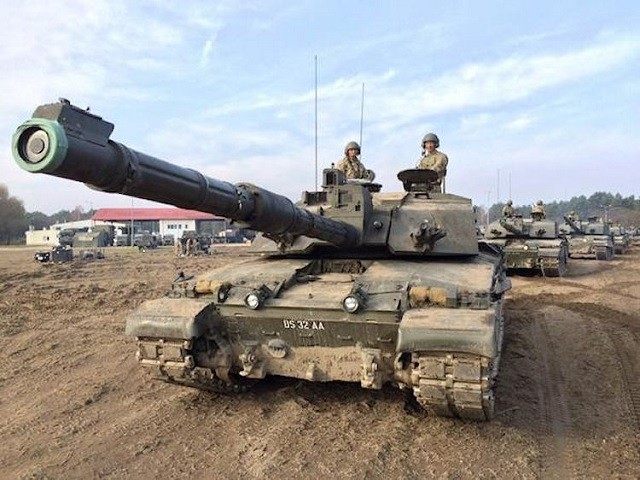Britain’s Defence Secretary has announced another deployment of British forces to Eastern Europe in a move that is sure to further sour relations between Russia and her Western neighbours.
Although the deployment is small – 100 men deployed between Poland, Latvia, Lithuania and Estonia, the announcement is symbolic at a time of accusations of Russia penetrating the airspace of North Atlantic Treaty Organisation (NATO) partner Turkey. Further, it provides a base and precedent for further reinforcement.
Speaking at a meeting of NATO defence ministers in Brussels, British secretary Michael Fallon said of the deployment: “This is further reassurance for our allies on the eastern flank of NATO – for the Baltic states and for Poland… That is part of our more persistent presence on the eastern side of NATO to respond to any further provocation and aggression”. The persistence of this deployment, which has also been underlined by a Ministry of Defence (MoD) spokesman who said it was to be a “long term presence in the Baltic states” is likely to cause significant consternation in Moscow.
Russia and NATO have long enjoyed an unnecessarily terse relationship over the accession of Eastern European, post-Soviet nations to the largely Western alliance. The Russian government assists reassurances were given by the United States and others at the end of the Cold War that NATO would not expand eastwards – an assertion the USA has since dismissed out of hand. It is not a clean cut matter – as noted by respected German news zine Der Spiegel, some senior American figures such as the former US ambassador to Moscow Jack Matlock have confirmed a “clear commitment” was given.
At the same time, Mikhail Gorbachev’s former foreign minister Eduard Shevardnadze has rubbished the idea.
Whether the eastward expansion agreement was indeed rooted in fact or not, another struck in 1997 is accepted by both sides, and yet appears to be threatened by Britain’s deployment. The agreement precludes the permanent deployment of NATO troops in Eastern and Baltic state nations, a point which has frustrated American ambitions to deploy troops to Poland and Romania in the recent past.
The carefully selected language – that the British deployment is “persistent” rather than “permanent” is likely to do little to reassure Moscow, yet the small scale is likely to be the ultimate ameliorating factor.
This is just the latest deployment of British forces to Eastern Europe in the past year. An interceptor unit of Royal Air Force Eurofighters was deployed to the Baltic earlier this year, playing their part in deterring the ever more common flights by Russian strategic aircraft. Late last year, Britain sent 1,300 troops and 350 military vehicles to Poland to take part in significant war-games simulating a thinly disguised Russian invasion of Eastern Europe.
The exercises were valuable to the British army not only in practising cooperation with eastern NATO allies, but also in the logistics of sending British main battle tanks to Eastern Europe by rail.
Watch: British Tanks on Exercise in Poland

COMMENTS
Please let us know if you're having issues with commenting.